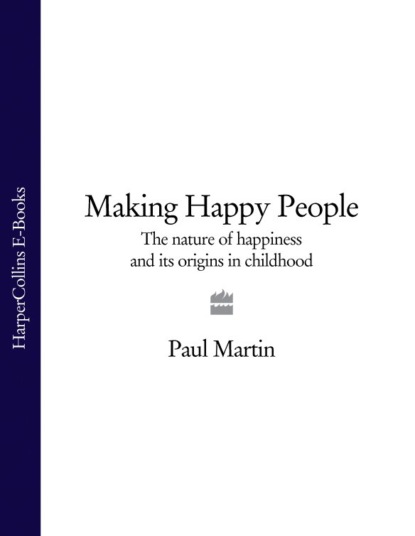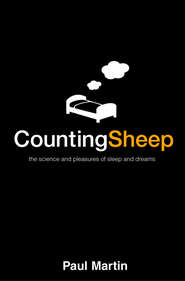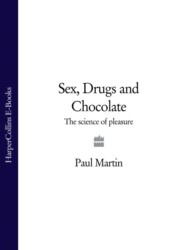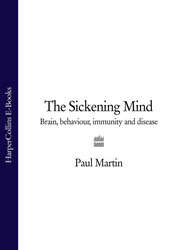По всем вопросам обращайтесь на: info@litportal.ru
(©) 2003-2024.
✖
Making Happy People: The nature of happiness and its origins in childhood
Автор
Год написания книги
2019
Настройки чтения
Размер шрифта
Высота строк
Поля
Truly happy people usually have a good sense of humour (although there is a certain form of superficial happiness, signified by a cheesy smile and a gleam in the eye, which seems to lack any humour or irony). Conversely, sad or depressed people are generally notable for their lack of hilarity.
Humour helps us roll with the blows. The ability to see the funny or absurd side of life is a useful antidote to misfortune and makes us more resilient. It helps us cope with stress, relieves tension, and can make bad situations seem less threatening. The eighteenth-century poet Matthew Green put it like this: ‘Fling but a stone, the giant dies. / Laugh and be well.’
The relatively few scientific studies that have delved into this area have found that humour has a range of psychological and physiological benefits, with no known side effects. Like sleep, humour is safe and pleasant to use. Experiments have shown that making people laugh can temporarily boost certain aspects of their immune system, potentially making them more resistant to infection and disease. Humour can certainly reduce the biological effects of stress, as measured by changes in the levels of the stress-related hormones adrenaline and Cortisol. Research has also confirmed that humour in the workplace is correlated with better working relationships, greater job satisfaction and increased productivity. The most creative and productive parts of an organisation are often the noisiest.
Humour is a social lubricant which can help to forge relationships and strengthen existing ones. As such, it promotes connectedness, the most important of all building blocks of happiness. It is probably no coincidence that lonely hearts ads seem to stipulate ‘GSOH’ more often than ‘good looks’ or ‘own house and car’. Humour is especially handy in difficult social situations, by enabling us to tackle awkward issues in a non-threatening way. Many a true word …
14. Playfulness
Children, like young animals of many other species, spend much of their time playing. Indeed, play behaviour is the quintessential characteristic of childhood. Play might seem pointless, but in fact it has important long-term benefits. Through play, children acquire valuable experience and develop their mental and physical capabilities. We will take a closer look at it in chapter 11.
Adults play too, albeit often in more structured ways. Sports and games are common forms of adult play, and common sources of happiness. So, too, are social leisure activities like making music, voluntary work and going to the pub. What they have in common is their ability to deliver all three basic elements of happiness – pleasure, lack of displeasure and satisfaction.
A less obvious feature of play is its delicate dependence on individual well-being. Play is a highly sensitive barometer of mental and physical health. A child who is feeling anxious, sad, hungry or ill will probably not be playful. Play behaviour is one of the first things to go when we are feeling less than well. As such, it can provide a valuable insight into the current state of individuals and organisations. The least creative and productive sections of an organisation are often the least playful.
A personal characteristic that is closely related to playfulness is openness to new experiences. By and large, happy people have a more welcoming attitude towards new experiences and cope better with change. Openness to new experiences and a willingness to change have become increasingly important in a complex world where the demands are evolving at an accelerating pace.
15. Wisdom
As we saw earlier, happiness depends to a considerable extent on how we think about the world, as well as our emotional responses. Someone who can think straight and solve real-life problems is better equipped to be happy.
One of the most valuable gifts that parents and teachers can bestow on children is wisdom – which is not as grand and rarefied as it might sound. There is nothing particularly mysterious or exclusive about wisdom. What it boils down to is an armoury of pragmatic knowledge about the world, together with some effective ways of thinking about problems. It is not the same as ‘common sense’, which often amounts to little more than prejudice or being wise after the event. Wisdom means being able to understand and deal with the challenges, both great and small, that we all encounter in everyday life. Wise people can identify the problem and then work out how to resolve it in a practical way. They remain objective and avoid being blinded by their own emotions. Wise people also recognise the inherent uncertainties of life, appreciate the limits of their own knowledge, and cope well with ambiguity.
The great philosophers of ancient Greece taught that people are happier if they acquire the thinking skills that enable them to make the right choices, develop the right attitudes, and cope with adversity. The evidence from modern science bears this out. Various studies have shown that individuals who possess wisdom tend to have happier lives. Wisdom makes a particularly big contribution to happiness in old age.
None of this implies that children must attend philosophy classes in order to be happy (although there is much to recommend this idea). It simply means that parents and teachers can help children greatly by equipping them with practical strategies for coping with everyday problems. These can include very simple rules of thumb, such as always trying to learn from bad experiences (‘what does not destroy me makes me stronger’), not setting wildly unrealistic goals, not seeing everything in black and white, and accepting that bad things sometimes just happen.
One of the main ways in which children acquire wisdom is by observing how their parents behave. Children are more inclined to do what their parents do than what they say, which means that parents need to think about their own behaviour and set a good example. Education obviously plays a key role as well. Well-educated people live healthier and happier lives, partly because they have the knowledge and wisdom to make the right choices and avoid harm. We will return to education and its contribution to happiness in later chapters.
16. Freedom from excessive materialism
Too many people in wealthy nations live their lives as though acquiring money and material possessions will bring them enduring happiness. In fact, as we shall see later, wealth has surprisingly little lasting impact on happiness. Acquiring more money or possessions can make us feel better for a while, but the rise in mood tends to be modest and short-lived. We soon get used to what we have and our expectations rise, leading us to want ever more.
More importantly, the process of trying to acquire wealth can actually make us less happy if it gets in the way of things that really do matter, such as personal relationships or a sense of purpose and meaning. As we will see in chapter 8, there is good evidence that highly materialistic people are less happy on average than those who have other priorities in life.
17. Regular experience of flow
A fairly regular occurrence for most happy people is a particular state of optimal experience which is sometimes referred to as flow.
(#litres_trial_promo)
Flow occurs when you are utterly absorbed in an activity. That activity might be something mundane like reading a book or socialising, or it might be more demanding, like playing a musical instrument or climbing a mountain. Whatever the activity is, you have chosen to perform it for its own sake and have a clear sense of what you are trying to do; you are also completely focused on the task in hand and nothing else seems to matter. (In this way, flow is an excellent antidote to self-absorption.) Your attention is firmly rooted in the present, rather than flitting anxiously between the past and future as often happens in normal experience. In addition, you might notice a change in your perception of time, which can feel either as though it has speeded up or slowed down. The sensation of flow can be intensely rewarding, but it may not feel especially pleasurable. Someone in flow will probably not be whooping with joy: the gratification usually comes later, when looking back on the experience.
Flow requires you to be fully engaged in a task that is sufficiently challenging to stretch your skills, but not so difficult that it becomes stressful. Someone in flow can feel intensely alive, as though they were meant to be doing what they are doing. Think of James Bond performing some feat of derring-do and saving the world (again). Bond feels more than mere physical pleasure – indeed, he might feel quite the reverse if the villains temporarily have the upper hand. Rather, he feels at one with himself and fulfilled. In contrast, an essentially passive pastime like watching TV is unlikely to produce flow because it makes so little demand on the viewer.
Вы ознакомились с фрагментом книги.
Приобретайте полный текст книги у нашего партнера:
Приобретайте полный текст книги у нашего партнера:








